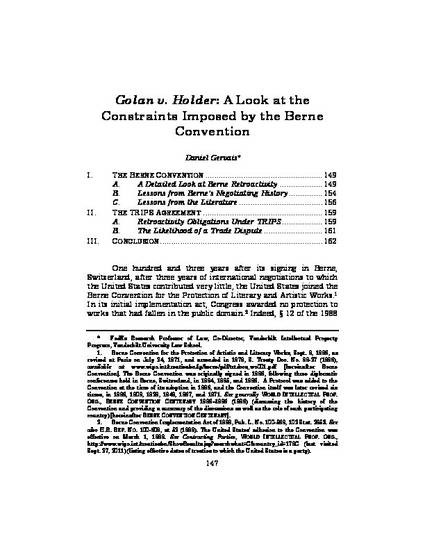
- copyright,
- public domain,
- Berne Convention,
- implementation,
- Golan,
- retroactive protection,
- United States Copyright Act
One of the central issues in the Golan v. Holder litigation is the extent to which the United States had flexibility to tailor the protection of existing works that had fallen in the public domain when it joined the Berne Convention. This Essay argues that the Berne Convention obligates the United States as a Berne Union member to provide some degree of protection, but otherwise leaves wide latitude to set the conditions under which works in the public domain receive retroactive copyright protection. The Convention itself does not mandate that any particular level of protection be granted to such works because, as both the negotiating history and secondary literature show, the drafters of the Convention acknowledged that member states would face implementing constraints in their countries. Whether or not the United States recognized this flexibility when it joined the Convention, it is clear that Congress can grant a limited form of retroactive protection to works in the public domain in order to meet its international obligations and simultaneously protect the constitutional rights of third parties.
Available at: http://works.bepress.com/daniel_gervais/71/
